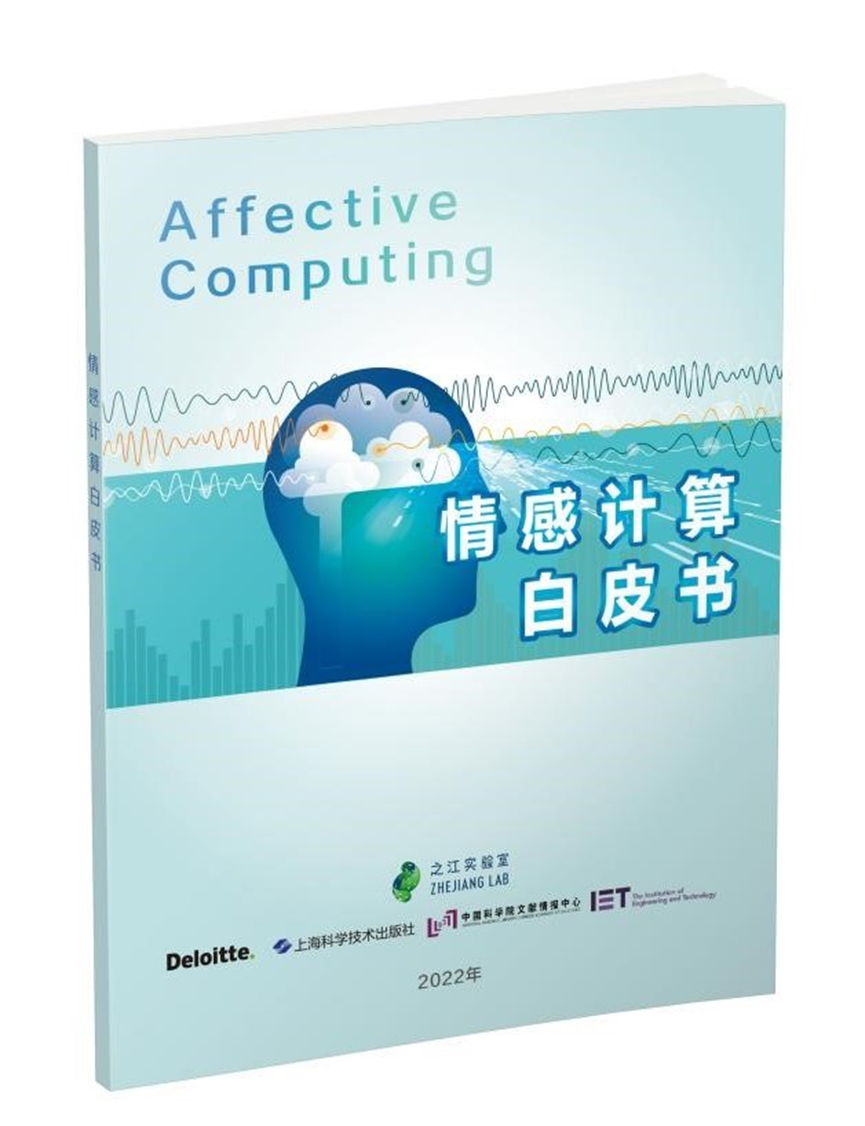

On December 9, the Affective Computing White Paper (hereinafter "White Paper") initiated by Zhejiang Lab and jointly compiled by Deloitte China, Shanghai Scientific & Technical Publishers, National Science Library, Chinese Academy of Sciences and IET, the Institution of Engineering and Technology, was officially launched worldwide.

Affective Computing is a fast-growing advanced and interdisciplinary science and also a hotspot for theoretical researches in recent years. Affective Computing aims to create a computing system which can sense, identify and understand human affections and make smart, agile and natural reactions in response. It is the fundamental technology and important premise for naturalized, humanized and characterized human-machine interaction, which provides the way for optimization of AI decision-making.
The White Paper, from an intersecting perspective integrating industry, academy and researches and under the knowledge framework integrating concept, theory, technology and application, analyzed the data from over 20,000 papers from 1997 to 2022, described the overview and collaborative ecology of affective computing, provided a comprehensive introduction to the affective computing technology and conducted quantitative analysis and case study on the academic achievements and applications in this area.
The White Paper pointed out that, multi-modal affective computing is one of the hottest topics in current AI studies. The 2021 Research Leadership Index (RLI) issued by Chinese Academy of Sciences shows that the RLI of relevant researches focusing on "multi-modal affective computing" is among top 10. According to the White Paper, human affection is usually demonstrated in diverse modes and there is a multi-stage fusion in the brain when it integrates multi-sensory information. Compared to single-modal affective computing using text, audio, visual or physiological signal, multi-modal affective analysis can improve affective understanding and expression by effectively combining and supplementing the information of different modes. The adoption of multi-modal affective computing is the key to improve robustness and superiority of a model.
Based on the results of data and text analysis, the White Paper predicts the trends for the technological development of affective computing in the next stage. Such trends include the construction of high-quality and large-scale data set, zero/small sample learning or unsupervised learning methods, innovation of multi-modal integrated technology, multi-model reasoning, affective computing inspired by cognitive neuro-science, cross-cultural affective identification and technological innovation driven by data and knowledge.
It is foreseeable that in the future, affective computing technology will not only grow its influence in daily education and training, life health, business services, industrial manufacturing, technological media and social governance, but also get involved in advanced areas such as smart services, VR and science-art integration. More and more organizations, enterprises and media will adopt such technology to solve practical issues in order to better serve the public.
The White Paper won wide attentions and recognitions among industrial experts and scholars. It is highly praised by the global top expert of affective computing, Academician REN Fuji of European Academy of Sciences and the Japan Academy of Sciences, Academician DAI Qionghai and Academician LI Deyi of Chinese Academy of Engineering, Academician YANG Xiongli and Academician CHU Junhao of Chinese Academy of Sciences, Academician MA Qingguo of International Eurasian Academy of Sciences, Director FU Xiaolan of the Institute of Psychology, CAS and Professor LYU Baoliang of Department of Computer Science and Engineering, Shanghai Jiao Tong University.
"The launch of the White Paper is a response to the demand of domestic or even international academic and industrial circles to learn about and understand the latest development of affective computing. It provides scientific researchers and industrial practitioners with rather complete blueprint for technological development and insights in application trend. All such will help with the development and transformation of affective computing." Said REN Fuji.
Besides, the launch of the White Paper also drew the industrial attentions. As the pioneer and leader in cloud computing, Amazon Web Services expressed its eager expectations in advanced AI technologies represented by affective computing and will work with Deloitte China to make early deployment to provide adequate guarantee via cloud and data technology for the effective application of affective computing technology.
As the leading party in compiling the White Paper, the Multi-modal Affective Computing Research Team of ZJ Lab is devoted to constructing human-like intelligence with "affective intelligence". Focusing on the key areas of research including cross-modal combined representation and reasoning and cross-modal content generation and featured by affective cognition, it has made a series of research achievements in the area of human-machine empathic interactions, relying on which it has published over 30 high-level papers, obtained over 20 patents that were authorized and won the second prize for Scientific and Technological Progress of Zhejiang Province. The Research Team welcomes wider academic and scientific researches and the joining of more ecological partners of industrial transformation to jointly promote the advancement of affective computing and the development of a new generation of AI.











